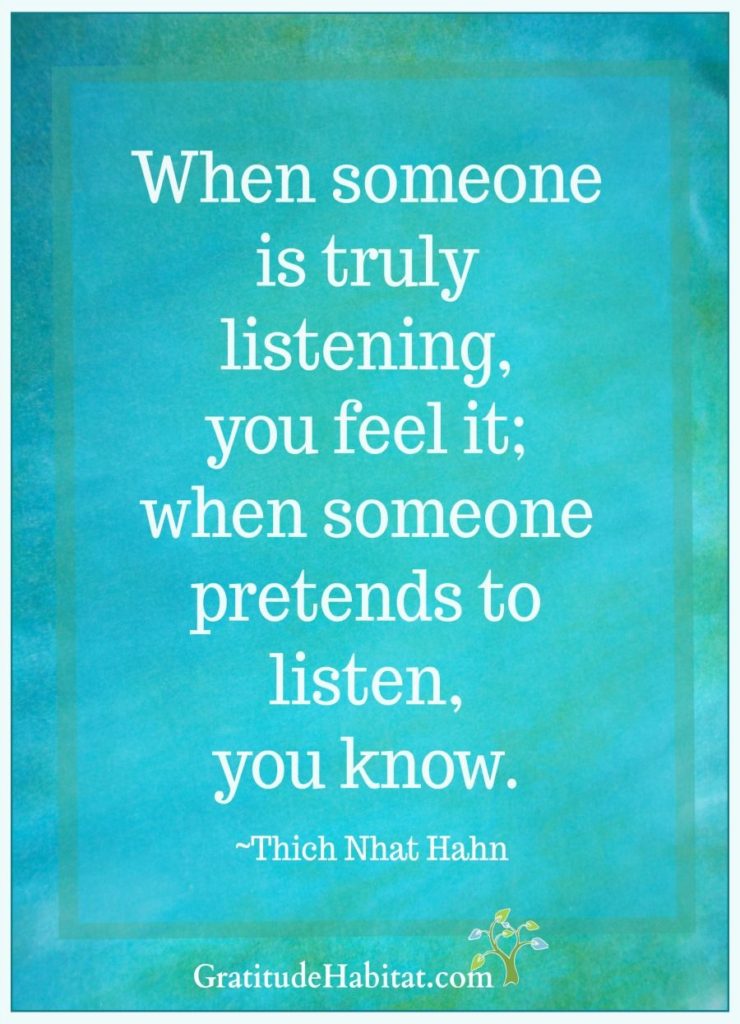Living In Gratitude: The Gift of Listening
One of the most sincere forms of respect is actually listening to what another has to say. ~ Bryant H. McHill
As with most holiday seasons, many of us will spend time in search of that perfect present, yet we have an amazingly powerful gift we can give to everyone we know. There is no monetary value involved but rather involves patience and practice. That gift is listening.
We were all taught at a very early age how to speak but were we ever really taught how to listen?
By following a few key steps, we will give our family, friends, coworkers and others the validation of truly being heard while we open ourselves up to new ideas, discoveries and understanding.
The four steps to being a good listener are:
1. Respect
By requesting other’s ideas and inputs and validating them as valuable, we open up a free flowing, safe line of communication that allows us to better comprehend that person’s viewpoint. This includes paraphrasing to ensure you are correctly hearing what the other person is saying. Being respectful doesn’t mean we should avoid asking difficult or pointed questions but rather that they are posed in a gentle and respectful manner. This approach will uncover important solutions, ideas and information.
2. Talking Less
The infamous 80/20 rule applies to the gift of listening in that we should allow others to speak 80% of the time while we speak 20% of the time. That 20% should be used to gain understanding and clarification by asking respectful questions. Though it can be difficult to suppress our urge to ‘have our say‘, it is possible with patience and practice. Although interrupting isn’t generally advised, it may be necessary to interject at key times to ask a question and direct the discussion if it is off track. Be sure to use these interruptions judiciously.
Most people do not listen with the intent to understand; they listen with the intent to reply. ~Steven R. Covey
3. Challenging Assumptions
Being open to new ideas allows us to discover different and possibly better ways of solving a problem or approaching a challenge. Being a good listener means challenging long-held assumptions and ways of doing things, both our own and those to whom we are listening. Just because it has always been done a certain way doesn’t mean there isn’t another option.
4. Emotional Validation
A basic human need we all possess is that of having our emotions validated. Being able to vent our anger, frustration, sadness or disappointment to someone and have them ‘get it‘ is invaluable. This listening skill entails letting the person to completely express their story so you have all the details. The, keeping your personal feelings and perspective out of the equation, let them know you know what happened, can understand how the felt and that their feelings are reasonable as a result of the situation. Express your sympathy or empathy if you’ve experienced a similar situation. Avoid pity as this is not emotionally validating.
Giving the gift of listening to those in your life is something that will be appreciated. It will lead to open, safe communication, new ideas and discoveries as well as enhanced relationships.
May your (holi)day be filled with gratitude and good things.






